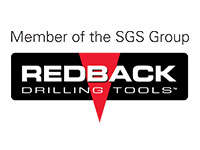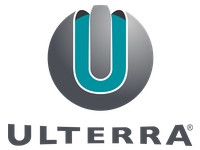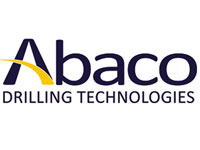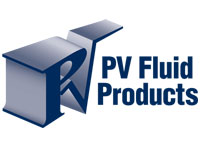AADE Houston IETG Meeting
When: Jan 18, 2024 @ 1:30 PM
Want to SPONSOR the IETG Meetings? The cost is $600 for the calendar year. Click Here to Sponsor!
REGISTER HERE
DATE: Thursday, January 18, 2024 - 1:30 PM - 4:00 PM
LOCATION: Norris Conference Center – City Centre: Elm Room, 816 Town & Country Blvd., Suite 210, Houston, TX 77024
COST: Member: Free to attend / Non-member: $15
Non-members have the option to join as a member or renew your membership before registering, then the meeting cost will be free as well as all subsequent DTC meetings for 2024.
Program Topic: “Additive Manufacturing"
SPEAKERS:
1. Annelise Le Gall, Additive Manufacturing Business Development Manager - Vallourec
Presenting: “Metallic Additive Manufacturing – How can WAAM solve industrial issues”
The rise of Additive Manufacturing (AM) has significantly impacted the landscape of stock optimization strategies in recent years across all industries. Additive Manufacturing, often referred to as 3D printing, enables on-demand, localized production, eliminating the need for extensive warehousing of physical inventory. AM also facilitates the creation of components and products with reduced lead times, making it a game-changer in supply chain efficiency. This presentation will focus on what Wire Arc Additive Manufacturing (WAAM) has and can achieve for components used in the Oil & Gas industry, especially Wire Arc Additive Manufacturing.
After a brief presentation of the process, available materials and designs, the presentation will focus on one or two business cases, demonstrating the added value of this technology that enables the capability to create complex, high-quality and large-scale metal components.
Annelise Le Gall holds a master’s degree in mechanical engineering from Karslruhe Institute of Technology (TH) (Germany) and Arts et Metiers ParisTech (France). She has been involved in the Oil and gas sector for over 16 years, starting in a pipe threading facility as Methods Engineer, where she developed a taste for all things industrial. After supporting the global VAM® licensee network as a quality auditor, she then assisted Oil and Gas operators with their OCTG-related issues as Technical Sales Manager for the North Sea sector from Scotland then Norway, before taking over the same role for Africa and Southern Europe.
Annelise is now working with Vallourec’s brand new Additive Manufacturing department, striving to develop the commercial success of this new technology, among which the Oil & Gas sector. Her past experiences with industrial, operational, and technical issues combined with her knowledge of the industry are key assets in this exciting role.
2. Lakshmi Vendra, Additive Manufacturing Technology Leader – Baker Hughes
Presenting: “Additive Manufacturing in Oil & Gas”
Additive Manufacturing (AM), also known as 3D printing, is the process of creating a physical object by printing it layer by layer from a digital 3D model. Unique challenges for the Oil & Gas supply chains include low volume, high mix, high value combination of manufactured products; high costs of logistics and storage; substantial financial consequences of rig downtime, placing a premium on lead time; and rental nature of many products and services, leading to a heavy focus on repair, maintenance and high costs of spare parts and large inventories. All these factors present an excellent opportunity for AM, as it can transform supply chains by enabling replacement parts to be manufactured at the point of use from locally available materials using digital models, containing information about the design, manufacturing processes, and inspection procedures. However, successful industrialization of Additive Manufacturing requires building new workforce capabilities and reskilling as appropriate to gain efficiencies and intelligence for manufacturing innovation.
Lakshmi Vendra is Additive Manufacturing Technology Leader at Baker Hughes. In her current role as Engineering Manager, she is responsible for overcoming key challenges to adoption of additive manufacturing as a viable industrial technology. Lakshmi brings 15 years of technical and business experience which includes positions in Research, Engineering, Supply Chain and Operations within Energy sector. She is a recognized expert in applied research and transforming technology into value added commercial products with over 25 publications and conference presentations. She holds a PhD in Mechanical Engineering from North Carolina State University.
3. Matt Sanders, Principal – Stress Engineering Services
Presenting: “Additive Manufacturing Part Qualification Examples and Advanced Techniques”
As the use of additively manufactured parts in high-performance, critical applications continues to rise, the question of their quality and reliability for these applications remains a topic of ongoing discussion. Through rigorous qualification testing, including pushing parts all the way to failure, we are gaining valuable insights into the strengths and limitations of AM parts. This presentation will show some testing examples highlighting key takeaways and providing a deeper understanding of the capabilities and potential of additively manufactured parts in high-performance settings.
The use of additively manufactured (AM) parts in high-performance or critical applications is becoming increasingly prevalent as confidence in the technology grows. However, some skepticism still remains regarding the quality and reliability of AM parts for these applications. Qualification testing is a crucial step in evaluating the performance and reliability of AM parts and determining their suitability for high-performance applications.
This presentation will showcase various qualification testing examples used to evaluate AM parts, including mechanical testing, environmental testing, and even testing all the way to failure. The presentation will showcase various advanced testing techniques and technologies useful for evaluating AM components during testing.
Matt Sanders is a Principal with Stress Engineering Services where he supports multiple practice areas including Aerospace & Defense, Testing, and Technology Development. Matt is a registered Professional Engineer with the state of Texas.
He supports SES’s Testing Practice Quality Management System and serves as an auditor for the full-scale testing laboratory. He also works as a qualification engineer utilizing SES’s advanced testing, material science, instrumentation, and analysis practices for the verification and validation of systems and components for a variety of industries including energy, medical, aerospace, and defense. He also serves on multiple national standardization committees working to advance multiple industries including API 20S and ASTM F42.
Matt Sanders holds a Bachelor’s degree and Master’s degree in mechanical engineering from Texas A&M University. His Master’s research involved the investigation of hydrogen embrittlement in titanium and aluminum alloys.
Register Here.
Reservations are required!
Deadline for reservations is Noon, Wednesday, Jan 17.
Location:
Norris Conference Center - CityCentre - Elm Room
816 Town & Country Blvd., Suite 210
Houston, TX 77024
Registration begins at 1 PM.
Parking:
The Norris CityCentre facility is located at the corner of intersection of IH-10 West and Beltway 8. The location features plenty of complimentary parking.
IMPORTANT NOTE – For your convenience, we encourage you to park in the garage that is attached to the Norris Centers location (enter the parking garage from Beltway 8). Take the “up” ramp in the middle of the parking garage. You will see signs with the Norris name and logo directing you to the correct floors to park. Please note that a number of parking spaces are reserved for other tenants of the complex and have “reserved” signs identifying these spaces, so please avoid parking in these reserved spots. There is plenty of parking on the roof!
For additional driving directions & a map, check their website at: https://norriscenters.com/houston-citycentre-map/

Contact houston@aade.org for any further questions.

Search AADE for PDF Files
© 2024 American Association of Drilling Engineers
Follow AADE:
This website uses cookies. By continuing to browse this website without changing your web-browser cookie settings, you are agreeing to our use of cookies. To learn more read our privacy policy.
Ok







